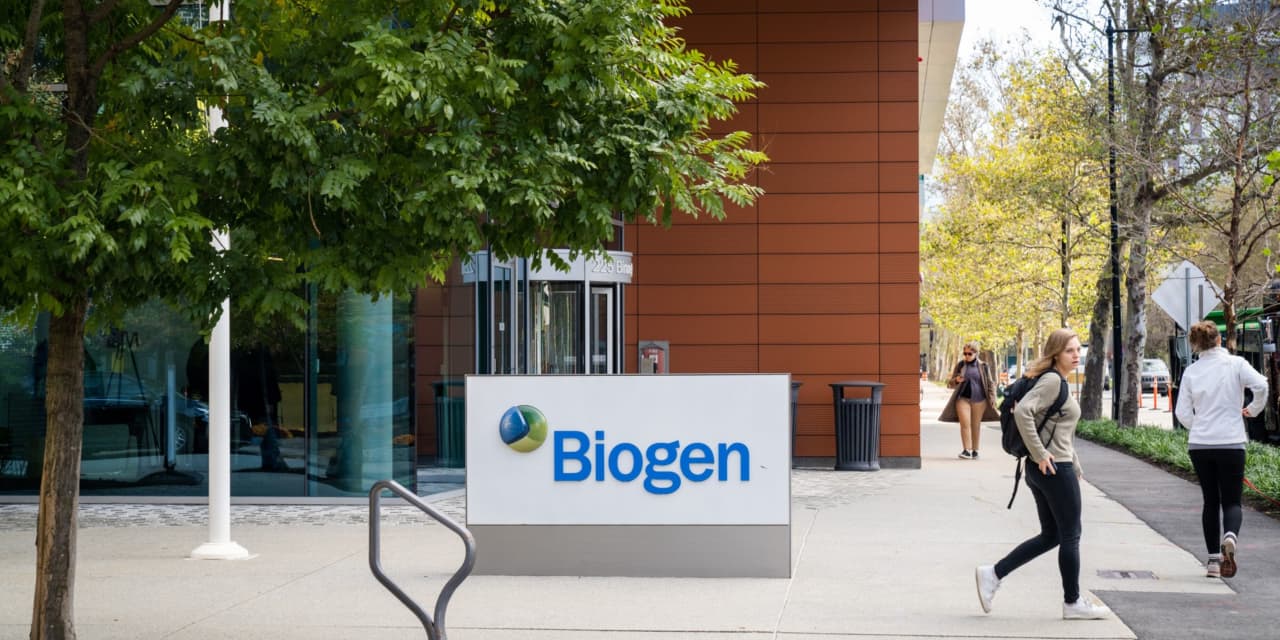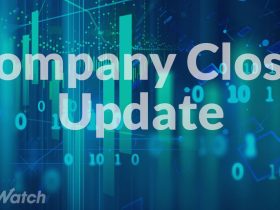When
Biogen
reports earnings Wednesday, investors won’t be paying much attention to the numbers.
Biogen
(ticker: BIIB), under new CEO Chris Viehbacher, is in a period of cost-cutting, and trying to build out a new Alzheimer’s disease franchise. There’s not much mystery around the trajectory of its older products, sales of which are flat or dropping.
As for its Alzheimer’s disease drug Leqembi, Biogen’s partner
Eisai
(ESAIY), which is leading commercialization of the drug, said Tuesday that U.S. sales were ¥0.4 billion ($2.7 billion) for the quarter.
That number was lower than some had anticipated, but analysts wrote that sales growth was expected to be slow for Leqembi. Eisai’s American depositary receipt dropped 4.8% on the results at midday Tuesday.
“Today’s numbers shouldn’t come as a surprise,” Jefferies analyst Michael Yee wrote Tuesday of the Eisai results. “Eisai is making steady progress on the launch with more prescribers and hospital networks on board, but it will take time for sales to grow.”
Also on Tuesday, Biogen partner
Sage Therapeutics
(SAGE) said it will price the postpartum depression drug Zurzuvae—which the companies are commercializing together—at $15,900 for a two-week treatment course. Leerink Partners analyst Marc Goodman wrote that the price is lower than expected, and shares of Sage were down 4.9% at midday.
As for Biogen, analysts will be listening Wednesday morning for any details on the Leqembi launch, updates on cost cuts, and the thinking on business development, according to UBS analyst Colin Bristow in a Nov. 1 note. Bristow wrote that the results and earnings call are unlikely to provide any “needle-moving” updates.
Analysts expect Biogen to report sales of $2.4 billion for the third quarter of its fiscal year, and earnings of $3.97 per share. In the same period last year, earnings were $4.77 per share.
Biogen stock has fallen about 11% this year, and down more than 35% since early June 2021—when shares spiked on excitement over Food and Drug Administration approval of the Alzheimer’s drug Aduhelm, which has since proved to be essentially a commercial failure.
In late October, Eisai said a new version of Leqembi that is injected under the skin cleared 14% more of the amyloid brain plaques thought to be associated with Alzheimer’s disease than the currently approved medicine, which is administered via intravenous infusion. Rates of the condition known as ARIA—a potentially dangerous brain swelling—were slightly higher in patients who received the subcutaneous version, but Eisai said that the sample size was too small for exact comparisons to be made.
Eisai expects to file for approval of the subcutaneous version of Leqembi by March of 2024.
Biogen in July announced a cost-cutting program that it said would reduce its head count by 1,000 people, and save $700 million in net operating expenses.
Write to Josh Nathan-Kazis at josh.nathan-kazis@barrons.com
Read the full article here













Leave a Reply